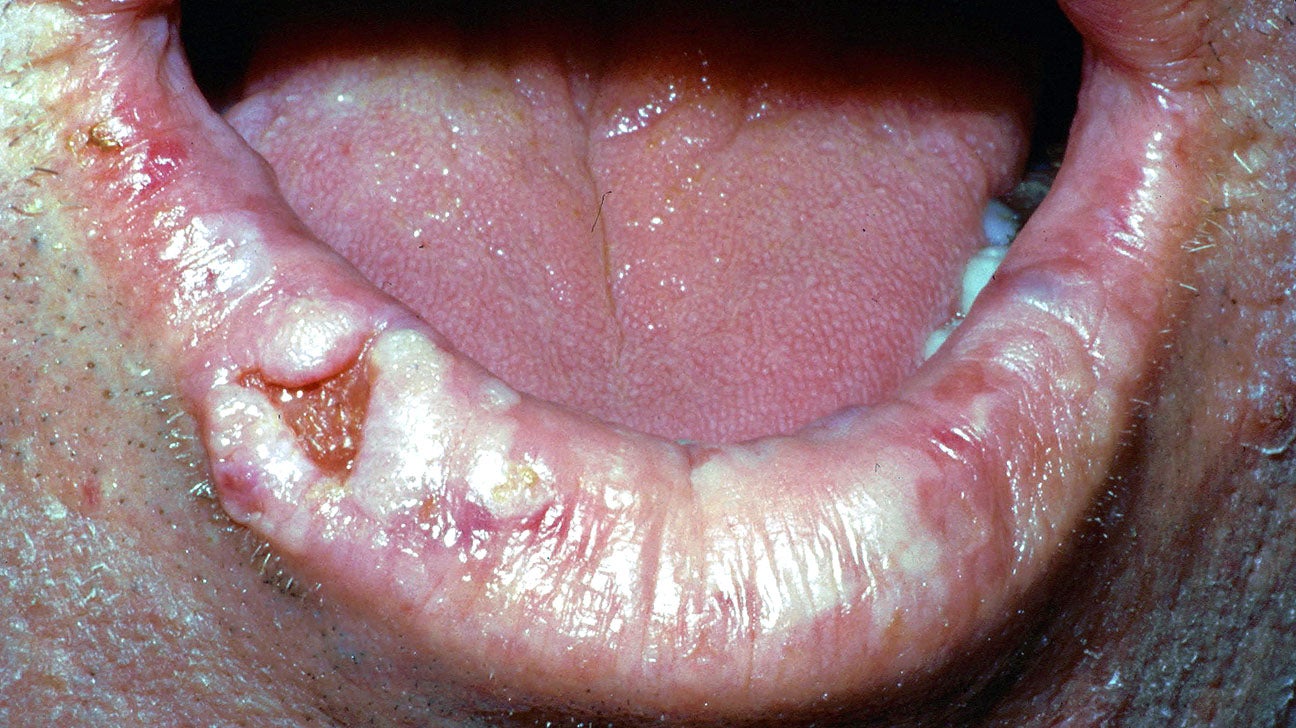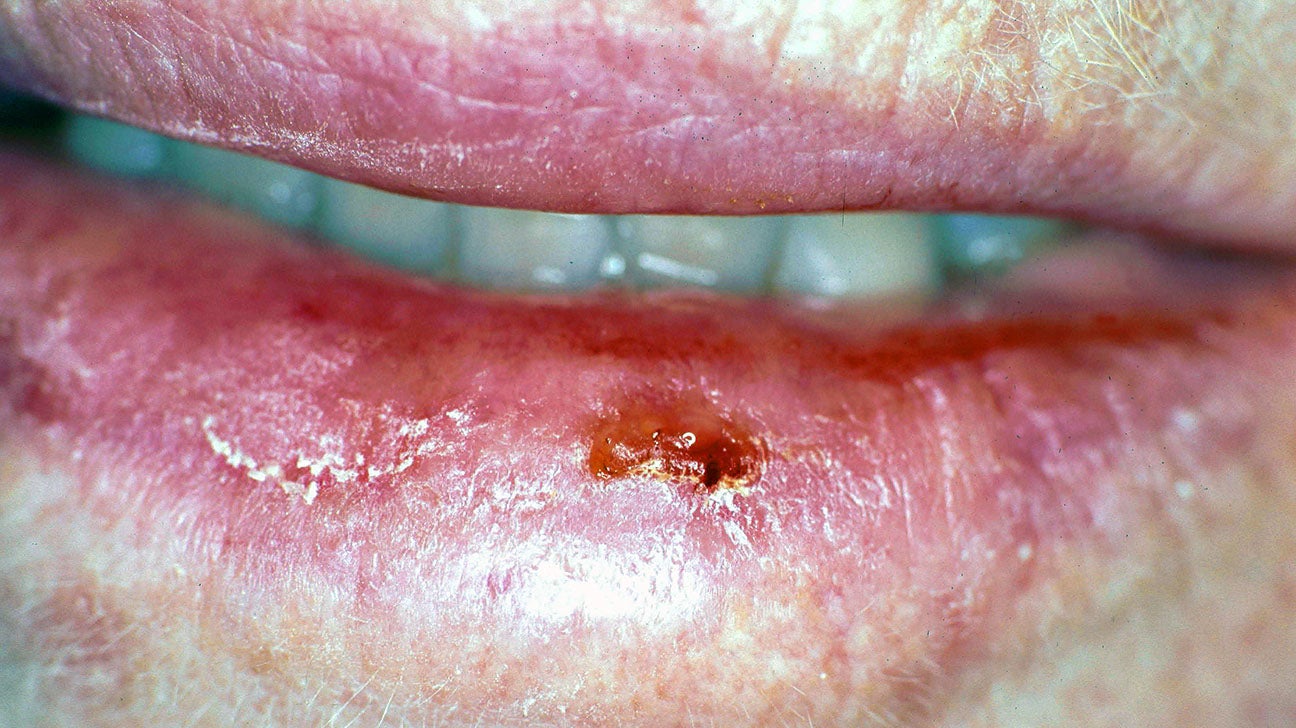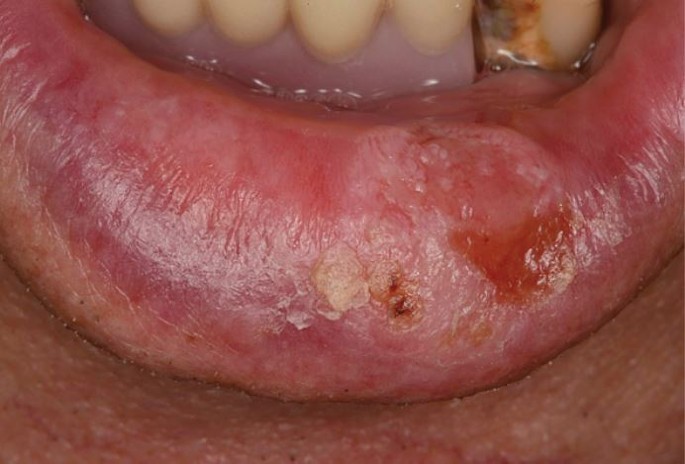What are signs of cancer on the lips ?
LIP CANCER :
Lip cancer develops from abnormal cells that grow out of control and form lesions or tumors on the lips. Lip cancer is a type of oral cancer. It develops in thin, flat cells — called squamous cells — that line the:
- lips
- mouth
- tongue
- cheeks
- sinuses
- throat
- hard and soft palates
Lip cancer and other kinds of oral cancer are types of head and neck cancers.
Certain lifestyle choices can increase your risk of developing lip cancer. These include:
- smoking cigarettes
- heavy alcohol use
- excessive sun exposure
- tanning
Dentists are typically the first to notice signs of lip cancer, often during a routine dental exam.
Lip cancer is highly curable when diagnosed early.
WHAT ARE THE CAUSE OF LIP CANCER ?
Lip cancer is a type of oral cancer that
Lip cancer is the most common cancer of the mouth.
More than 90% of oral mucosa cancers, including lip cancers, begin in the squamous cells of the epidermis. Squamous cells are thin, flat cells that line the lips and other areas of the mouth. These cells grow out of control and form lesions or tumors on the lips.
Anyone can get lip cancer. However, certain lifestyle and environmental factors can increase a person’s risk of developing this disease.
These factors
- heavy alcohol use
- smoking or using tobacco products
- prolonged exposure to natural or artificial sunlight, such as from tanning beds
Other risk factors for lip cancer include:
- being male
- having light-colored skin
- being over the age of 40 years
- contracting certain strains of the human papillomavirus (HPV), including strains 16 and 18.
Lip cancer may not always have obvious symptoms in the early stages. People sometimes discover that they have lip cancer during a routine visit to their dentist.
The symptoms of lip cancer can be similar to those of other conditions, so it is important to see a doctor or dentist about any unexplained lesions or bleeding from the lips. Even if the person does not have cancer, they may need treatment for an injury or infection.
The
Other signs and symptoms of lip cancer can
- a lump on the lips or a noticeable thickening
- painful or numb lips
- bleeding from the lips
- a red or white patch on the lips
- tightness in the jaw that results from swelling
A diagnosis by reviewing a person’s symptoms, medical history, and risk factors. They may ask about:
- the family history of cancer and other diseases
- tobacco or alcohol consumption
- previous or current medical conditions
- history of dental procedures
The doctor will then carry out a physical examination of the person’s mouth. Typically, they will closely inspect the lips and the inside of the mouth for lumps and abnormalities. The doctor may also check the lymph nodes in the neck for swelling.
If the doctor suspects that a person has lip cancer, they will usually perform a biopsy. This test involves taking a small sample of skin from the affected area and examining it under a microscope for signs of cancer.
If the biopsy confirms a diagnosis of lip cancer, the doctor will order additional tests to help determine the stage of the cancer and if it has spread to other areas of the body.
HOW TO TREAT LIP CANCER ?
The type of treatment for lip cancer typically
- the stage of the cancer
- the size and location of the tumor
- the person’s general health
A doctor will discuss the available treatment options with the person and work closely with them to develop a suitable treatment plan.
Standard therapy for lip cancer usually involves a combination of surgery and radiation therapy. Surgeons aim to remove the tumor and restore the function and appearance of the lips. Radiation therapy involves the use of high-energy beams to kill tumor cells and prevent cancer from returning.
Removing the cancer increases the chances of fully curing it.
Other treatment options for lip cancer can include:
- cryotherapy
- targeted therapy drugs
- chemotherapy
It is not always possible to prevent lip cancer. However, a person can reduce their risk of developing lip cancer by:
- using appropriate sun protection when outside, including sunscreen, lip balm with SPF protection, and a hat with a brim
- limiting or avoiding the use of tanning beds
- reducing alcohol intake
quitting tobacco products and avoiding tobacco smoke- having regular dental checkups



Comments
Post a Comment